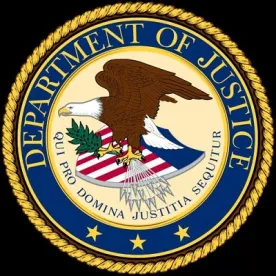On August 14, 2020, the Department of Justice issued a Foreign Corrupt Practices Act (“FCPA”) Advisory Opinion—the first of its kind in nearly six years. The DOJ’s opinion advised a U.S. investment company that the transaction fee is paid to a foreign state-owned bank’s subsidiary would not trigger an FCPA enforcement action.
The FCPA generally prohibits United States’ companies or individuals from giving or offering bribes to foreign officials to obtain or retain business. The FCPA required the Attorney General to create a procedure that allows companies to seek guidance on specific FCPA compliance concerns, thus the DOJ FCPA Opinion Procedure was born. Companies can ask the DOJ whether “specified, prospective—not hypothetical—conduct” violates the FCPA.
While the FCPA opinion procedure has been in place since the 1980s, requests have significantly diminished over the years. While the cause of the decline is unclear, it is likely due to several reasons. First, the opinion procedure is a time-intensive public process that can potentially divulge sensitive information about a prospective transaction. Another reason for its rare use is the amount of time it takes to receive a final opinion—often taking many months, or even a year, and requiring supplemental information gathering. Such delays are often not conducive to a pending business transaction. Additionally, some companies are reluctant to draw federal prosecutors’ attention to a potential illegal transaction and instead opt for legal opinions and compliance oversight from outside law firms. Nonetheless, the opinion procedure can be helpful for companies to receive surety that certain transaction complies with the FCPA.
In this instance, an unnamed U.S. based investment advisor, which manages private funds serving institutional investors, sought guidance from the DOJ in November 2019 as to whether its payment to a foreign state-owned bank’s affiliate would trigger an FCPA enforcement action. According to the advisory opinion, the requestor bought assets worth $47.5 million from a subsidiary of the foreign bank in February 2019. In connection with the purchase, the requestor sought and received analytical assistance from another of the foreign bank’s subsidiaries. A month after the purchase, the assisting-subsidiary asked the requestor for a $237,500 transaction fee equal to 0.5% of the assets’ value. The requestor sought an advisory opinion as to whether payment of that fee triggered an enforcement action.
Nine months later, the DOJ concluded that the payment did not amount to a foreign bribery violation. Relying on the facts as represented by the requestor, the DOJ found that there was no information demonstrating that the requestor intended to corruptly influence a foreign official through the payment of the transaction fee. The DOJ reasoned that the FCPA did not prohibit the payment because it went to a foreign government agency (the investment bank’s subsidiary) and not to an individual public official—a fact that was confirmed by the subsidiary’s Chief Compliance Officer. Additionally, the payment was made in exchange for bona fide services rendered during the transaction.
While the DOJ’s advisory opinion will have no precedential value for companies other than the requestor, it is still helpful to obtain insight into the DOJ’s interpretation and application of the FCPA. For additional guidance, the DOJ and SEC recently released an FCPA Resource Guide, which provides information for a corporate leniency program.







 />i
/>i

